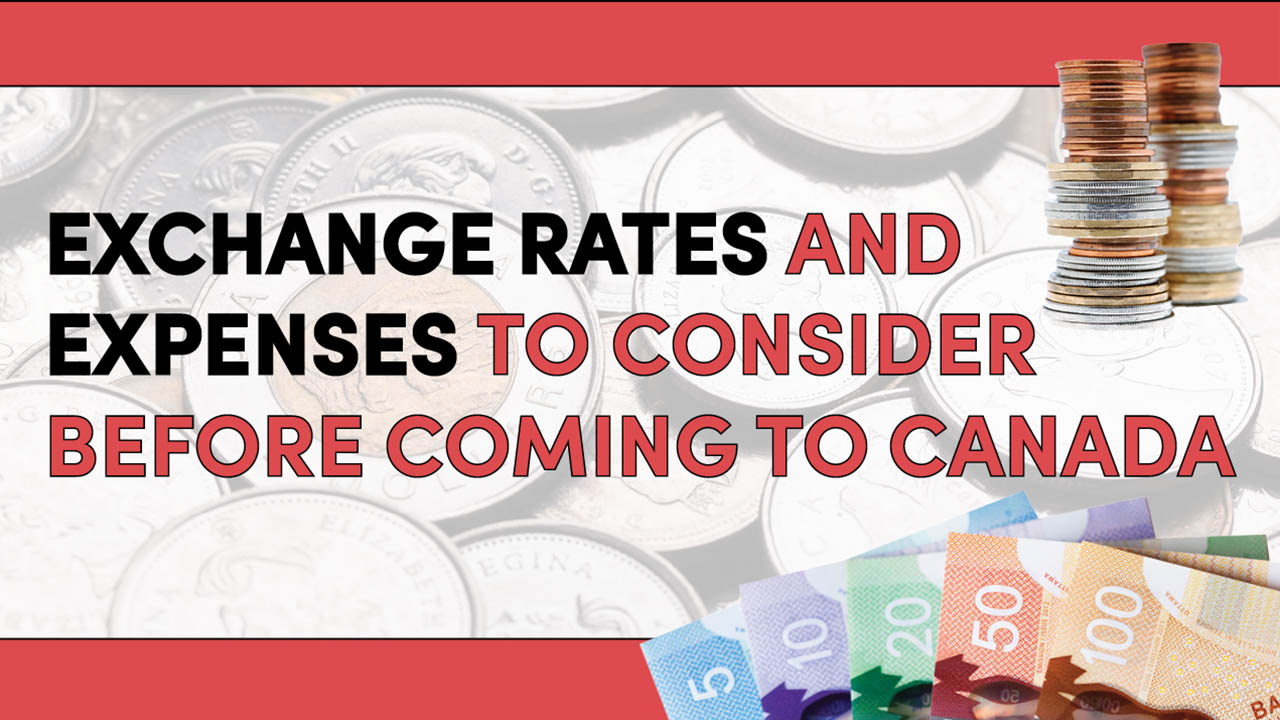Exchange rates and expenses to consider before coming to Canada
 CREDIT: FSU PUBLICATIONS AND COMMUNICATIONS DEPARTMENT
CREDIT: FSU PUBLICATIONS AND COMMUNICATIONS DEPARTMENTHigh exchange rates add a financial crunch to international students, but knowing what to expect and how to handle it can help. Knowing the exchange rate against other currencies could play a key part in study abroad decisions for international students.
“When I came to Canada from Brazil, the currency exchange between the Brazilian Real and the Canadian Dollar was a big and confusing problem,” said Fanshawe international student Pedro Gomez. “I ended up getting less exchange than I expected. Thankfully I found a job quickly, which helped me recover, but it was a worrying situation for me.”
Gisela Somoza, a Fanshawe international student from El Salvador, had a similarly confusing experience with her student loan.
“El Salvador’s currency is the US dollar, so the exchange rate worked in my favour. The bad thing is that I overpaid the semester because I did not know how exactly the currency exchange worked,” Somoza said.
Somoza stated it was a “confusing and overwhelming situation” for her with all the exchange fees.
Fanshawe International Student Engagement Manager Emily Low said that every international student goes through this at some point and in different variations. She said the best way for students to avoid getting impacted by the exchange rate is to use Fanshawe’s resources and research ahead to understand how the currency exchange and fees will affect them.
“Most people do not realize how impactful the currency exchange rate is on large sums of money,” Low said.
Low stated that students can visit the Government of Canada’s website to know how the currency exchange rate compares to their country. She added that the Fanshawe website and Google are helpful tools for understanding tuition, rent, and living costs.
Yohanna Cardenas, a Fanshawe international student from Colombia, had a different experience since she travelled to Canada with her husband and daughter.
“We as a family tried to bring all our money and savings to Canada, which in the Colombian Peso, was a significant amount, but when we came to Canada, we realized it was not as significant as we thought with all the exchange rates and fees,” Cardenas said.
Low said that sometimes this situation depends on where they come from because some currencies get more affected than others. Low also stated that Fanshawe has resources to help lower the impact of those situations and help to make the currency transition smoother.
“Depending on where you are coming from, an online session will be held in that country for those students to go and ask those questions. Some of those sessions are offered in the language spoken in that country. There are in-person, incountry meetings for students, too,” Low said.
She said that students could also contact or go to the Fanshawe Student Union (FSU) since they have a student life coordinator and a finance coordinator who can help them with financial literacy.
“They can often take the time to do online sessions or sit down with the student and explain the difference or even budget what resources are available out there depending on the student’s situation,” Low said.
Low said that the currency exchange impact is inevitable for every international student, but it can be reduced noticeably with the proper tools and guidance.
“Reach out and do some research. Find out how much it costs to live and how much money is your basic rent. Read the program specifications to check if your bus pass is included in your tuition.”

















